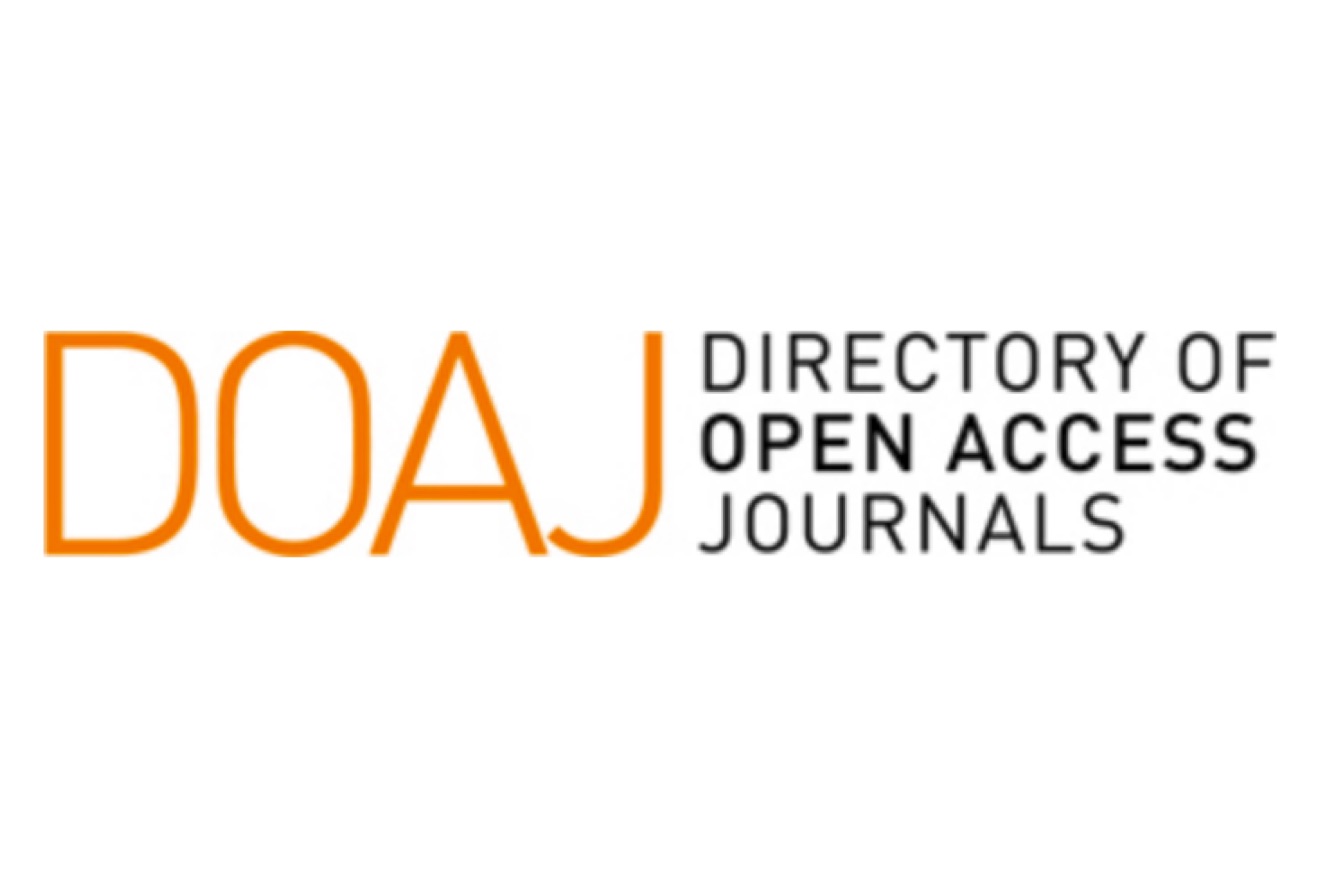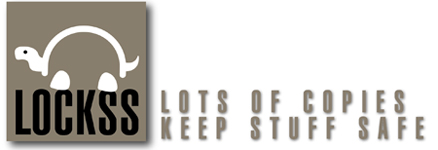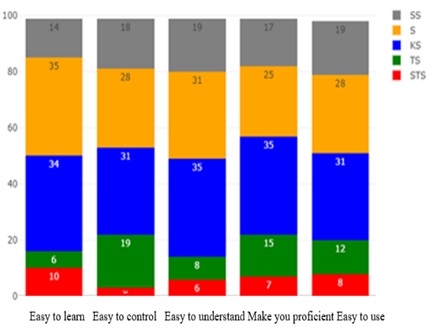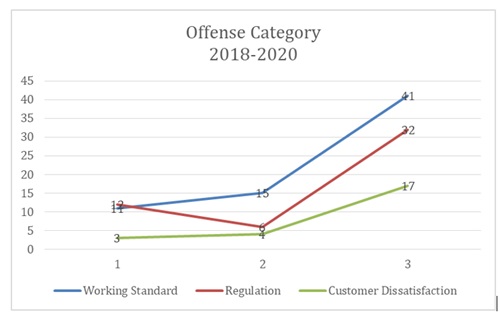Pengaruh Variabel Peningkatan Produktivitas , Penguasaan Teknologi Baru dan Pelatihan Terhadap Pengendalian Mutu Terpadu Karyawan Pada Industri Tekstil dan Garmen di Surakarta
Downloads
Integrated Quality Control requires the participation of all divisions within the company, such as marketing, design, manufacturing. Laboratory examination. As an integrated process that focuses on customers and beneficiaries, it simultaneously aims to protect and enhance the satisfaction of all stakeholders. Employee development does cost a lot, but it is a long-term investment for the company in personnel. Because skilled and skilled employees will be able to work more efficiently, effectively, wastage of raw materials, and less machine wear, better results will increase the company's competitiveness. The purpose of this research is (a) to know the level of Employee Productivity (TPK), (b) Employee Training (PK) and (c) Latest Technology Development (PTT) whether the positive effect on Integrated Employee Quality Control (PMTK). This research use Survey research method by using quantitative approach. The results obtained the employee Productivity Level positive effect on Integrated Quality Control Employees with 0,072 standardized coefficients. Employee Training has a positive effect on Integrated Employee Quality Control with a standardized coefficient of 0.164. Latest Technology Development positively influences to Integrated Quality Control Employee with a coefficient of standardized 0,114.
Downloads
Anggraeni, E. A., Herlambang, T., & Nursaidah. (2016). Pengaruh Motivasi Kerja, Kompensasi Finansial Dan Kompensasi Non Finansial Terhadap Prestasi Kerja Karyawan Pada Perusahaan Bintang Mulia Hotel & Resto Jember. Jurnal Manajemen Dan Bisnis Indonesia, 2(1), 1–15.
Budi, A., Paramita, P., & Wulan, H. (2016). Terhadap Komitmen Karyawan Yang Berdampak Pada Produktivitas Kerja ( Studi Kasus Karyawan Di Cv . Tirta. Journal Of Management, 2(2).
Linarwati, M., Fathoni, A., & Minarsih, M. (2016). Tudi Deskriptif Pelatihan Dan Pengembangan Sumberdaya Manusia Serta Penggunaan Metode Behavioral Event Interview Dalam Merekrut Karyawan Baru Di Bank Mega Cabang Kudus. Journal Of Management, 2(2).
Prasetyo, E. (2016). Dampak Kebijakan Peningkatan Techno-Economy Pada Industri Tekstil Sebagai Upaya Peningkatan Produktivitas Dan Daya Saing Bangsa. In Prosiding Seminar Nasional Multi Disiplin Ilmu & Call For Papers Unisbank (Sendi_U) Ke-2 Tahun 2016 Kajian Multi Disiplin Ilmu Dalam Pengembangan Ipteks Untuk Mewujudkan Pembangunan Nasional Semesta Berencan (Pnsb) Sebagai Upaya Meningkatkan Daya Saing Gl (Pp. 820–828). Semarang.
Puspandoyo, T., Rohmawati, I., & Wisiastuti, I. (2016). Total Quality Management Pada Unit Pelayanan Terpadu Penanggulangan Kemiskinan ( Uptkp ) Kabupaten Sragen. Aktual, 2(1), 34–42.
Rahmana, A., Kamil, M., & Sukaya, Y. (2016). Efektivitas Model Pelatihan Berbasis Simulasi Dalam Meningkatkan Kompetensi Manajemen Proyek Karyawan Industri Manufaktur. In Seminar Nasional Ienaco (Pp. 301–308).
Samudi. (1994). Konsep Mutu Dalam Iso-9000 Dan. Economic Journal Of Emerging Markets, 5, 40–46.
Ulum, I. (2009). Batik Dan Kontribusinya Terhadap Pereonomian Nasional. Jurnal Bestari Universitas Muhamadiyah Malang, 42(1), 21–32.
Yusmina, E., Murniati, & Niswanto. (2014). Dalam Peningkatan Kinerja Sekolah Pada Smk Negeri 1 Banda Aceh. Jurnal Administrasi Pendidikan Pascasarjana Universitas Syiah Kuala, 4(2), 168–178
JMIL Jurnal Manajemen Industri dan Logistik (Journal of Industrial and Logistics Management) is an Open Access Journal. The authors who publish the manuscript in JMIL Jurnal Manajemen Industri dan Logistik agree to the following terms:

JMIL Jurnal Manajemen Industri dan Logistik is licensed under a Creative Commons Attribution 4.0 International License. This permits anyone to copy, redistribute, remix, transmit and adapt the work provided the original work and source is appropriately cited.
This means:
(1) Under the CC-BY license, authors retain ownership of the copyright for their article, but authors grant others permission to use the content of publications in JMIL Jurnal Manajemen Industri dan Logistik in whole or in part provided that the original work is properly cited. Users (redistributors) of JMIL Jurnal Manajemen Industri dan Logistik are required to cite the original source, including the author's names, JMIL Jurnal Manajemen Industri dan Logistik as the initial source of publication, year of publication, volume number, issue, and Digital Object Identifier (DOI); (2) Authors grant JMIL Jurnal Manajemen Industri dan Logistik the right of first publication. Although authors remain the copyright owner.





























